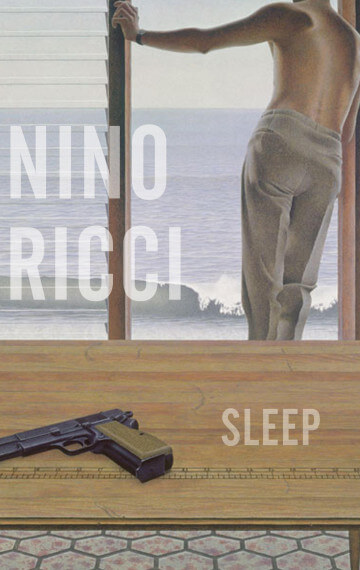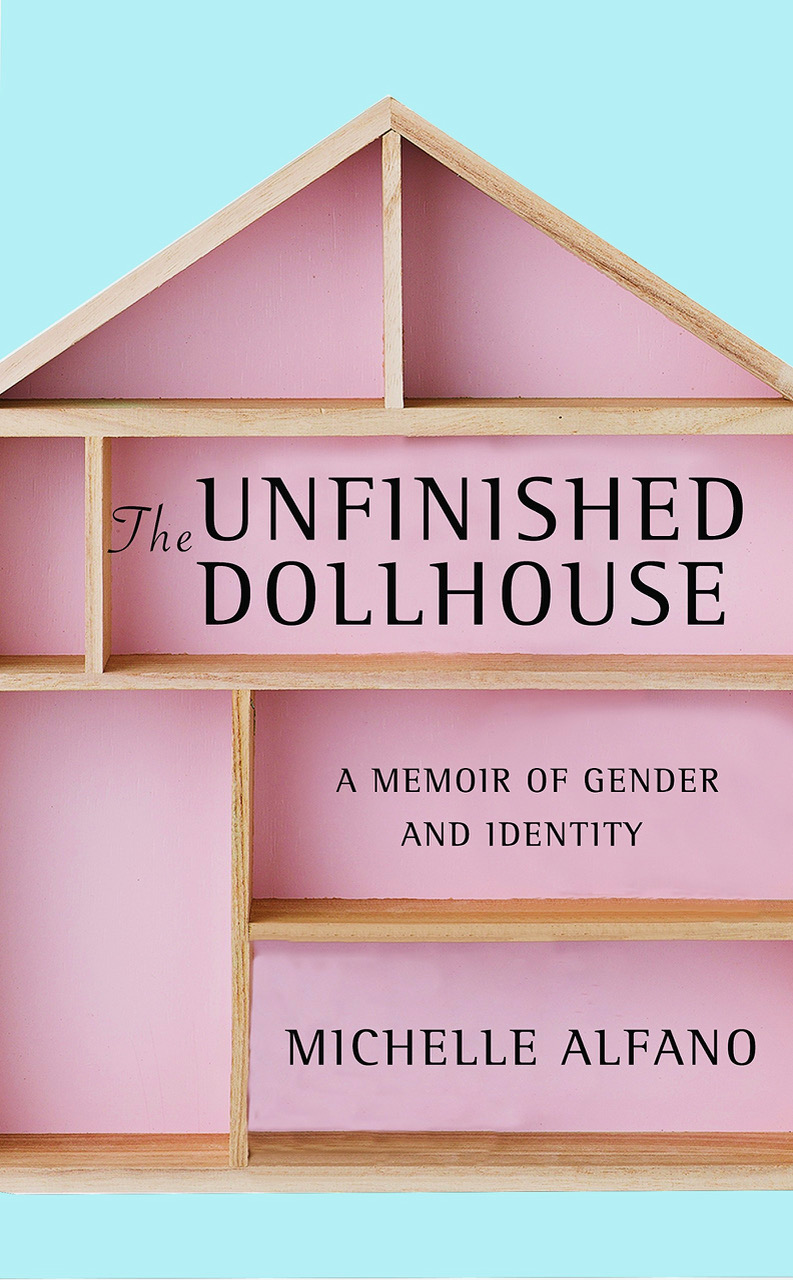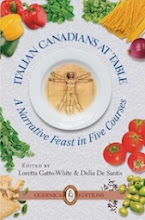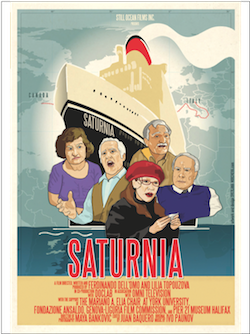Thursday, December 31, 2015
At Years End ...
I have not read half as much as I had hoped to read this year ... it was a challenging year and there was much to read and absorb. But here is the list ... and here's to another year of reading that engages, alarms and entrances!
Requiem and Poem Without a Hero by Anna Akhmatova
Fifteen Dogs by Andre Alexis
Liza's England by Pat Barker
Undone by John Colapinto (Please see review here)
Where did you sleep last night by Lynn Crosbie
The Year of Magical Thing - a play based on the memoir by Joan Didion
All the Light We Cannot See by Anthony Doerr
Don't Look Now by Daphne Du Maurier
The Sicilian Wife by Caterina Edwards (Please see review here)
The Cocktail Party by T.S. Eliot
Bad Feminist by Roxane Gay
The Girl on the Train by Paula Hawkins
Trans by Juliet Jacques
Her by Harriet Lane
Go set a Watchman by Harper Lee
H is for Hawk by Helen MacDonald
The Assassination of Margaret Thatcher by Hilary Mantel
Republic of the Imagination by Azar Nafisi
Based on a True Story by Elizabeth Renzetti
Sleep by Nino Ricci (Please see review here)
Sister Crazy by Emma Richler
Forgiveness by Mark Sakamoto
Coriolanus by Shakespeare
Julia Child by Laura Shapiro
The Prime of Miss Jean Brodie by Muriel Spark
The Real Thing by Tom Stoppard
Station Eleven by Emily St. John Mandel
The Malaise of Modernity by Charles Taylor
All my puny sorrows by Miriam Toews
Decline and Fall by Evelyn Waugh
The Day of the Locust by Nathanel West
December Cultural Roundup
Books:
The Cocktail Party by T.S. Eliot
The Day of the Locust by Nathanel West
Fifteen Dogs by Andre Alexis
Films:
Peggy Guggenheim: Art Addict (U.S., 2015)
White Christmas (U.S., 1954)
A Christmas Carol (U.K., 1951)
Sense and Sensibility (U.K., 1995)
A Charlie Brown Christmas (U.S., 1965)
Four Weddings and a Funeral (U.K., 1994)
The Martian (U.S., 2015)
Steve Jobs (U.S., 2015)
The Wrecking Crew (U.S., 2015)
Joy (U.S., 2015)
Music
Riverdale Share Concert, Danforth Music Hall, December 6th
Monday, November 30, 2015
November Cultural Roundup
Saturday, October 31, 2015
October Cultural Roundup
Exhibits:
AIMIA | AGO Photography Prize Exhibit, AGO
Books:
All the Light We Cannot See by Anthony
Doerr
Sleep by Nino Ricci (Please see review here)
Requiem and Poem Without a Hero by Anna
Akhmatova
Where did you sleep last night by Lynn
Crosbie
Literary:
The (Not So) Nice Italian Girls Reading
Series presents a Roman style Bacchanalia, October 4, 2015 at the Black Swan
Tavern
Film:
Black Mass (U.S., 2015)
Rosemary's Baby (U.S., 1968)
Rosemary's Baby (U.S., 1968)
Sunday, October 25, 2015
A Very Masculine History
Sleep by Nino Ricci (Doubleday, 2015) 235
pages
**SPOILER ALERT ***
Secrets are poisonous - especially those
kept from one's spouse and closest relations. The secret that our protagonist
David Pace withholds from his wife Julia is enormous and eventually undoes the
marriage. David has a serious sleep disorder - unnamed specifically but clearly
a form of narcolepsy - that almost endangers the life of their son Marcus in a
near car accident on the highway at the beginning of Sleep. But as the book
progresses we realize that the problem is much deeper than a medical ailment.
What troubles David is what ails many men -
an obsession with violence and power and an overwhelming sense of shame when
one loses face or control. The diminishing of power engenders rage and
violence. This is not a book for the faint of heart - it's a stunning example
of "dirty realism", a form of realism that depicts the
"seamier" aspects of life in simple and unadorned language.
David Pace is a cauldron of anger and
insecurity, alternately fearsome in his rages and self-castigating in light of
his list of moral and professional failures. An academic, specializing in Roman
history and achieving a sort of minor academic celebrity for his book Masculine
History, the main character is ironically named Pace (pace means peace in
Italian). Mr. Pace's troubles are many: a failed marriage, accusations of
plagiarism and stealing from a student in his academic work, a hostile
relationship with his twin Danny and his mother and memories of an acrimonious
relationship with his dead father - a successful but bullying totem in David's
past.
David is petulant, unhappy and somehow,
interestingly, sympathetic to the reader in many instances.
The anger runs through every page like an electrical
current - anger at Julia's smothering attentions to their only child; jealousy
of his twin Danny's material success and ostentatious home in the suburbs (the
homes in Danny's suburbs are said to resemble Rome before the fall); envy of
his department head's past relationship with Julia, a fellow academic; the list
is endless.
Julia's post-partum depression seems to
makes scant impression on David, aside from being a tool to bludgeon her with
when they fight over Marcus. In David's mind, he has become: "... the
enemy, the threat, the bad parent she needs him to be in order to assure
herself she is the good one."
Post-divorce, a trip to the cemetery to see
his father's grave with his mother and brother, elicits only this from David: a
fantasy that somehow his teenaged father had forged some sort of relationship
with the fascist leader Mussolini during WWII when he lived in his small
southern Italian village. As a boy, David searched through his father's papers
for proof of such an unsavoury alliance to no avail.
When David comes upon his nephews and son
furtively playing with their grandfather's gun at Danny's house, David
squirrels away the gun under the pretext of removing it from the grasp of the
children. He secretly begins to practice shooting at a range - alternately
enthralled and repelled by his new fascination. This begets a new obsession.
David is a dangerous creature - not because
of his medical condition or his efforts to hide it - but because its discovery
seems to unleash the unpleasant, unsavoury, misogynistic wreck hidden beneath
the veneer of the mild-mannered, semi-successful academic. David has neither
patience nor respect for the women in his life - his ex-wife Julia, his mother
or Jennifer, the hapless grad student whom he lures into his home for a night
of illicit drugs and, allegedly, non-consensual sex. Afterwards David can
remember virtually nothing of their sexual encounter.
When Jennifer lodges a complaint against
David suggesting that she was a victim of date rape, David fears the worst - that he has transgressed in a manner that
he can't recall or guess at during his sleep. He thinks of other incidents that
he has read about in which narcoleptics have murdered their loved ones in their
sleep. He fears:
If intent is there, doesn't blame follow?
Maybe all sleep has done is provide the permission the waking mind has
withheld.
When David is driven from the college and
banished to a lesser position in a school south of the border - driven away by
his illness, mismanagement of his meds, near bankruptcy, poor relations with
Julia and Marcus and his disastrous encounter with Jennifer - he lands in an
equally precarious position. It's as if he is descending into a further ring of
hell.
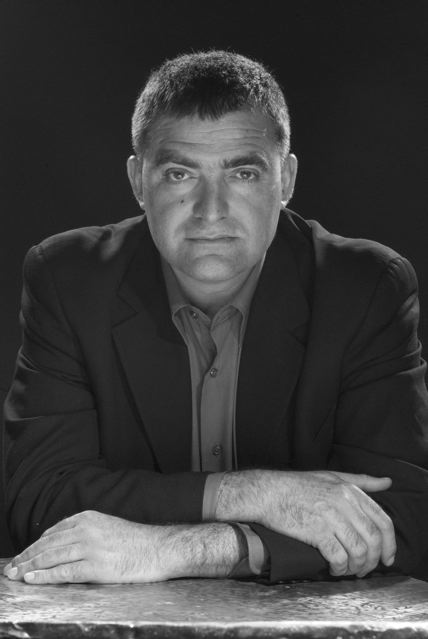 He finds himself falling for Kateri, the
wife of Greg, the academic and friend who invited him to the U.S. college to
teach. Sensing vulnerability and unhappiness, he is inexorably drawn to her.
His relationship with her is brutal and reciprocal. Among his many addictions
is his addiction to danger and risk - from relationships that will inevitably
implode and will damage his chances of success to his fascination with guns and
violence.
He finds himself falling for Kateri, the
wife of Greg, the academic and friend who invited him to the U.S. college to
teach. Sensing vulnerability and unhappiness, he is inexorably drawn to her.
His relationship with her is brutal and reciprocal. Among his many addictions
is his addiction to danger and risk - from relationships that will inevitably
implode and will damage his chances of success to his fascination with guns and
violence.
...
for the first time he thinks he gets what the real thrall of a gun is beyond
the blood lust and compensations, this feeling of being alone on the road
without judges or gods, beholden to no authority but your own. The terrible
freedom of that, of making the hard choice. Anything less, it seems is only for
sleepwalkers.
David can neither control his more destructive
impulses nor does he appear to want to. When he is removed from the college,
yet again, for a grievous transgression he ends up in a foreign country on the
business end of karma. The end result is spectacular and somehow appropriate.
At one point, David is confronted by a very
young band of thugs, all with weapons and poor impulse control, David
hallucinates that the leader of the boys is named Marcus, a clever Oedipal
detail. For in this tale, the sons will destroy their fathers with the weapons
that they have received from their fathers.
~
Wednesday, September 30, 2015
September Cultural Roundup
Films:
Hitchcock/Truffaut (U.S., 2015) Please see review here.
Rocco and his Brothers (Italy, 1960) Please see review here.
Force Majeure (Sweden, 2014)
Freeheld U.S., 2015) Please see review here.
Eva doesn't sleep (Argentina, 2015) Please see review here.
Hyena Road (Canada, 2015) Please see review here.
Janis: Little Girl Blue (U.S., 2015) Please see review here.
Louder Than Bombs (U.S., 2015) Please see review here.
Room (U.S., 2015) Please see review here.
Art
Toronto Outdoor Art Exhibit, Toronto City Hall, September 18th - 20th
Literary:
Nino Ricci's book launch for Sleep, McNally's Books, September 21st
Word on the Street, September 27th
Hitchcock/Truffaut (U.S., 2015) Please see review here.
Rocco and his Brothers (Italy, 1960) Please see review here.
Force Majeure (Sweden, 2014)
Freeheld U.S., 2015) Please see review here.
Eva doesn't sleep (Argentina, 2015) Please see review here.
Hyena Road (Canada, 2015) Please see review here.
Janis: Little Girl Blue (U.S., 2015) Please see review here.
Louder Than Bombs (U.S., 2015) Please see review here.
Room (U.S., 2015) Please see review here.
I Smile Back (U.S., 2015) Please see review
here.
Sky (France, 2015) Please see review here.
Stonewall (U.S., 2015)Art
Toronto Outdoor Art Exhibit, Toronto City Hall, September 18th - 20th
Literary:
Nino Ricci's book launch for Sleep, McNally's Books, September 21st
Word on the Street, September 27th
Thursday, September 17, 2015
TIFF 2015: Sky
 |
| Norman Reedus, Diane Kruger and Lena Dunham avec bebe |
Romy (Diane Kruger) is a young French woman unhappily married to the rather brutish
Richard (Gilles
Lellouche) and holidaying in America. After a violent altercation during a drunken fight, Romy flees and heads for Las Vegas, fearing that she has killed Richard.
She later finds out that she has not. But this is only after many mis/adventures (in a small cameo, Kruger's real life boyfriend Joshua Jackson appears as a police officer who informs her that Richard is still alive).
Romy hitchhikes to Las Vegas, dons a bunny costume to pose for photographs for money, is mistaken for a working girl, and meets the enigmatic Diego, a park ranger who claims only to sleep with prostitutes.
Romy is the sort of romantic European who is in love with the southwest, aboriginal cultureand the image of cowboys. A seedy bar in the middle of nowhere with a cast of dubious characters has enormous appeal for her. To my North American eyes, the locale seems as sad and desperate as something out of The Last Picture Show. But for Romy, she feels that she is finally amongst honest, authentic people.
She follows Diego home and decides to remain there, finding a job as a waitress, befriending Diego's pregnant sister-in-law Lena Dunham, and seeking solace from a wise and benevolent Indian grandmother who serves as a surrogate mother to the lonely Romy and christens her "Sky". This makes me squirm a bit in that I recognize my own infatuation with aboriginal culture and values. I see pieces of Romy in myself and it makes me uneasy.
Here she finds a kind of happiness even though her plans do not evolve as she has hoped. Krueger is convincing as the dislocated Romy and Reedus is appropriate as the mysteriously sexy Diego, the elusive object of her desire.
The footage of California and Nevada is stunning, romantic, picturesque ... much as Romy imagines it to be. It is easy to buy into the fantasy, the romance of the southwest.
Romy hitchhikes to Las Vegas, dons a bunny costume to pose for photographs for money, is mistaken for a working girl, and meets the enigmatic Diego, a park ranger who claims only to sleep with prostitutes.
 |
| Director Fabienne Berthaud with translator |
She follows Diego home and decides to remain there, finding a job as a waitress, befriending Diego's pregnant sister-in-law Lena Dunham, and seeking solace from a wise and benevolent Indian grandmother who serves as a surrogate mother to the lonely Romy and christens her "Sky". This makes me squirm a bit in that I recognize my own infatuation with aboriginal culture and values. I see pieces of Romy in myself and it makes me uneasy.
Here she finds a kind of happiness even though her plans do not evolve as she has hoped. Krueger is convincing as the dislocated Romy and Reedus is appropriate as the mysteriously sexy Diego, the elusive object of her desire.
The footage of California and Nevada is stunning, romantic, picturesque ... much as Romy imagines it to be. It is easy to buy into the fantasy, the romance of the southwest.
TIFF 2015: I Smile Back

Sarah Silverman (Laney) and Josh Charles (Bruce)
I Smile Back (U.S., 2015) directed by Adam Salky, Winter Garden, 1p 85 minutes
Laney (Sarah Silverman) is a dangerously deceptive person living a seemingly idyllic life - with a kind, attractive, successful husband named Bruce (Josh Charles) and two picture perfect children whom she is completely devoted to, living in great comfort and security in an upscale New York suburb. He's in insurance but you can't have everything.
And this security and veneer of contentment appears to be part of the problem because Lainey is an addict. She is addicted to cocaine, marijuana, bennies, among other drugs and she is also addicted to dangerous situations. Whether she is having unsafe sex with violent strangers, sex with a close friend's husband, or crudely insulting her child's good friend's mother with whom she has a petty disagreement over the value of Thanksgiving.
Silverman is perfect in this role - roiling with some unexplained rage that can be, in part,
Whatever is tormenting Laney seems only to be assuaged by drugs, sex and/or turmoil and usually all three at once.
Although I applaud the fact that there was no easy solution to Laney's problems or a pat resolution in the film, in the end, as much as I enjoyed her performance (and I did a great deal) I was left with the thought that this film, based on the book by Amy Koppelman, brought nothing new to the genre. What are we left with - junkies are dishonest, unreliable, dangerous, unpleasant, uncontrollable? They disappoint you, cheat on you, destroy your happiness?
Wednesday, September 16, 2015
TIFF 2015: Room
 |
| Jacob Tremblay (Jack) and Brie Larson (Ma) |
Room (Ireland/Canada,
2015) directed by Lenny Abrahamson, Princess of Wales, 3p, 118 minutes
This Booker-shortlisted phenomenon by the Irish-Canadian novelist Emma Donoghue was a hugely successful - both critically and commercially. It certainly shocked and entranced many of us when it was released. Expectations were very high for this film.
Joy (Brie Larson) was kidnapped and held in a sound proof bunker disguised as a garden shed at seventeen. Two years later she was impregnated by her captor (whom she refers to simply as Old Nick) and gives birth to Jack (Jacob Tremblay). They live in a space that Jack calls the "Room". When the film opens, Jack is five.
Joy (Brie Larson) was kidnapped and held in a sound proof bunker disguised as a garden shed at seventeen. Two years later she was impregnated by her captor (whom she refers to simply as Old Nick) and gives birth to Jack (Jacob Tremblay). They live in a space that Jack calls the "Room". When the film opens, Jack is five.
In the book, Joy (known as Ma to Jack) creates a complete and wondrous world for Jack - she is creative, mindful of his health, actively physically engaging him, all in one single room that contains everything they need to live in a very minimal manner: drinking water, food, heat, a toilet, a bath.
Larson is wonderful here - striking the right balance between loving, fearful and very close to the edge as she struggles to survive under horrific circumstances. At night, the repulsive and sometimes violent "Nick" brings food and supplies and forces sex on Joy while Jack is confined to a wardrobe, unseen and unheard.
The young boy Jacob Tremblay is a wonder here - the little boy is, by turns, loving and inquisitive, angry and confused, defiant and all five year old petulant when required by the script.
When Jack turns five, Joy conceives a plan to escape and then the duo are forced to live under the scrutiny of the press and the pressures of existing in the wider world when they are successful in their escape.
The script is constructed such that the tension does not diminish with the transition to the post-Room world. Joy is angry, sometimes unstable. sometimes rough with Jack. He has high anxiety dealing with new people and chaotic situations. Mercifully, we no longer see their captor and the film does not dwell on the abuse that Joy suffered or how she was entrapped by "Nick".
It's balanced and non-exploitative in area that could easily slip into a very salacious re-working of the novel.
The script is constructed such that the tension does not diminish with the transition to the post-Room world. Joy is angry, sometimes unstable. sometimes rough with Jack. He has high anxiety dealing with new people and chaotic situations. Mercifully, we no longer see their captor and the film does not dwell on the abuse that Joy suffered or how she was entrapped by "Nick".
It's balanced and non-exploitative in area that could easily slip into a very salacious re-working of the novel.
 |
| View from the very very back row |
TIFF 2015: Louder than Bombs
It may be that Louder than Bombs is so
appealing as a film because it depicts the dynamics of a family in the
aftermath of the death of the mother as rather complicated and sometimes ugly. No
one escapes scrutiny or censure here.
Gene Reed (Gabriel Byrne),
a high school teacher and former actor, struggles with the death of his wife, Isabelle Reed (Isabelle Huppert), a highly respected
and accomplished photojournalist who had killed herself four
years before in a car crash. Isabelle's photographs are exceptionally beautiful and relevant (I would love to know who the real photographer is, they are mesmerizing). She travels the world and captures humanity at its most poignant. This makes the return home problematic; she always appears to be yearning for something else and seems ill at ease at home.
Gene takes solace in the arms of a sympathetic colleague at school unbeknownst to his sons. The two boys, Jonah and Conrad, vastly different from each other, pursue divergent paths in recovering from the tragedy.
Gene takes solace in the arms of a sympathetic colleague at school unbeknownst to his sons. The two boys, Jonah and Conrad, vastly different from each other, pursue divergent paths in recovering from the tragedy.
Jonah (Jesse Eisenberg) is a gifted if intellectually overbearing young professor - highly talented, articulate but somewhat cold, much like his mother. He is also a new father who seems unsettled by the arrival of a new daughter and indulges in a dalliance with an old flame to alleviate some of the anxiety he is experiencing.
Conrad (Devin Druid) is an awkward loner who is immersed in violent video games and obsesses over a girl in his class who doesn't even know his name.
Gene tries desperately to connect with the boys but mostly fails as many parents do. As we all do.
The performances are uniformly good. No one - perhaps with the exception of Byrne - appears likeable, least of all the sons but it is an honest portrayal. We are judgmental, angry, immature, in the face of tragedy. We blame each other, we blame ourselves. We are weak. We are confused. We are human.
Conrad (Devin Druid) is an awkward loner who is immersed in violent video games and obsesses over a girl in his class who doesn't even know his name.
Gene tries desperately to connect with the boys but mostly fails as many parents do. As we all do.
The performances are uniformly good. No one - perhaps with the exception of Byrne - appears likeable, least of all the sons but it is an honest portrayal. We are judgmental, angry, immature, in the face of tragedy. We blame each other, we blame ourselves. We are weak. We are confused. We are human.
Tuesday, September 15, 2015
TIFF 2015: Janis: Little Girl Blue
Janis: Little Girl Blue (U.S., 2015) directed by Amy Berg, Scotiabank 2, 4p, 106 minutes
If you are like me and have a limited
knowledge of Janis Joplin’s life, you might have shared the view that Joplin
was a carefree, happy-go-lucky hippie. This film is important
in that the filmmaker Amy Berg has discovered some previously unseen material
that paints a fuller, more nuanced portrait of the singer.
Born in Port Arthur, Texas in 1943, it
might surprise you to learn that Joplin was an early and vocal supporter of
integration in Texas, a highly unpopular view in that era and place. She was an
early Beatnik who loved the blues and black music and a loner with few friends.
She was once voted “Ugliest Man’ by her schoolmates.
That early ugliness and sense of alienation
drove her, after high school, to embrace the scene in San Francisco amongst
hippies and rockers and like-minded people. It was also her first taste of hard
drugs.
As a member of the increasingly popular Big Brother and the Holding Company, she became a rock star but still, she
wondered, “Why do the guys in the band go home with some girl and I go home
alone?” Even when she was calling the shots with her own band, the Kozmic Blues Band, her insecurities did not seem to abate.
What would drive this young woman, at the height of her fame, to return to her high school reunion ten years after she graduated in her feather boa and psychedelic glasses - to say "Look, I am better than you think I was."
I find it extraordinarily empowering to see a woman succeed on her own terms in the music industry - through sheer will power and talent rather than sex appeal and and the usual trappings of conventional - short-lived as it was.
A profoundly complex person of great sensitivity – we learn about a more this vulnerable and lonely person through rarely seen footage, interviews and her personal letters to her straight-laced yet loving family back in Texas who watched in wonder as she soared into the stratosphere.
A profoundly complex person of great sensitivity – we learn about a more this vulnerable and lonely person through rarely seen footage, interviews and her personal letters to her straight-laced yet loving family back in Texas who watched in wonder as she soared into the stratosphere.
TIFF of the Day: Wonderful to see artists such as Pink, Juliette Lewis and other female artists acknowledge Joplin's influence in the closing credits of the film. I could easily see Pink in a bio pic about Joplin's life.
Subscribe to:
Posts (Atom)




